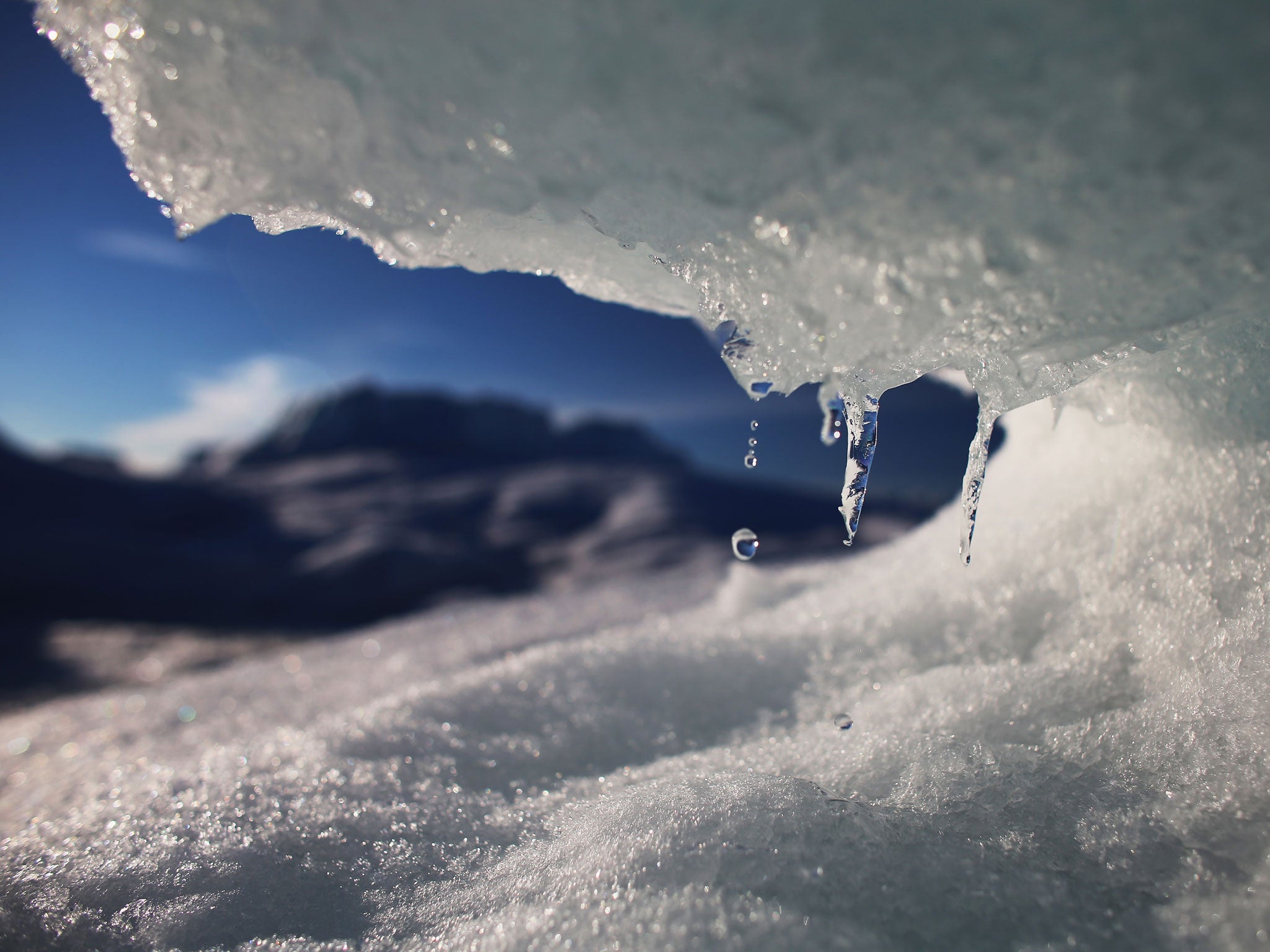Global warming proponents and sceptics agree on one point: study into myth of 'pause' merits more research
Otherwise the conflicting views go on as strongly as ever

A study suggesting that the "pause" in global warming is not real has managed to unify climate scientists and their arch-sceptics over the need for further research to clarify whether global average temperatures really have flat-lined over the past 15 years.
Read more:
The study, by Kevin Cowtan of York University and Robert Way of Ottawa University, found that the global warming pause could be virtually eliminated by including temperature estimates from the Arctic, which are currently excluded because of a lack of weather stations in this remote region.
As revealed today by The Independent, the study used an established statistical technique called kriging to fill in the missing surface temperatures in the Arctic with satellite readings of the atmosphere above. This eliminated the pause or hiatus in global average temperatures that appears to have developed over the past decade or more.
The slowdown in temperatures has been used by climate sceptics, such as the former Chancellor Lord Lawson of Blaby, to undermine the science of climate change, claiming that global warming has stopped despite a continuing rise in industrial emissions of greenhouse gases - set to reach a record 36 billion tons in 2013.
However, Lord Lawson said yesterday that he would like to read the latest study before commenting on it in detail. "These things come out from time to time and sometimes they have merit and sometimes they don't. It needs to be reviewed by other scientists," Lord Lawson told The Independent.
However, the science writer and climate sceptic Matt Ridley, now Lord Ridley, a Conservative hereditary peer, dismissed the latest study because it relies on swapping one type of "uncertain data" used to fill in the gaps in the polar region with another.
"Even if that gives a slight net warming for the past 15 to 17 years, it does not change the fact that the warming over the full 34 years since warming began has been slower than predicted by 95 per cent of the [computer] model runs consulted by the Intergovernmental Panel on Climate Change….The key point is that warming is slower than expected," Lord Ridley said.
Rasmus Benestad of the Norwegian Meteorological Institute in Oslo, who was one of the first scientists to try to estimate the effect of the missing Arctic warming data on global average temperatures, said that the latest study is a useful contribution to the debate.
"The pronounced recent warming can be inferred from different and independent observations, such as the melting of the ice on Greenland, thawing of permafrost, and the reduction of the sea-ice. Hence, when the most rapidly warming regions on Earth are not part of the statistics, the global mean estimate is bound to be lower than the real global mean. Hence, our picture of Earth's surface temperature is somewhat 'patchy'," Dr Benestad said.
It is likely that the slowdown in global average temperatures to the Earth's surface is the result of a combination of factors, such as the uptake of heat in the deep oceans, the effect of El Nino and La Nina conditions in the Pacific Ocean, in addition to the hidden temperature increases in the Arctic, he said.
Professor Richard Allan of the University of Reading said that the study by Cowtan and Way appears reasonable as they have tested their method by applying the technique to regions of the world where there are ground-based measurements to gauge its accuracy. However, the study is still preliminary and will need to be scrutinised by other scientists, Professor Allan said.
"There is still a slowdown in the rate of global average surface warming in the 21st century compared to the late 20th century and this still looks to be caused by natural fluctuations in the ocean and other natural climate fluctuations relating to volcanic eruptions and changes in the brightness of the sun," Professor Allan said.
"However, the size of this slowdown and the discrepancy between observations and climate simulations may be less than previously thought. The conclusions of the IPCC stands: we can expect a return to substantial warming of the planet over the coming decades in response to rising concentrations of greenhouse gases," he said.
Ed Hawkins of Reading University added: "This is an interesting and important contribution to the continuing discussion about the recent temperature hiatus, but is unlikely to be the final word on the issue. It must also be remembered that a 15-year trend is still too short to be considered as representative of longer-term global temperature trends, and also too short to be meaningfully compared with climate simulations."
The Conservative MP Peter Lilley said that he is not convinced that the latest study can explain the pause. “The IPCC tried to explain the pause by saying the heat is in the deep ocean and now these people say it’s in the polar regions. They both can’t be right,” Mr Lilley said.
Join our commenting forum
Join thought-provoking conversations, follow other Independent readers and see their replies
Comments
Bookmark popover
Removed from bookmarks